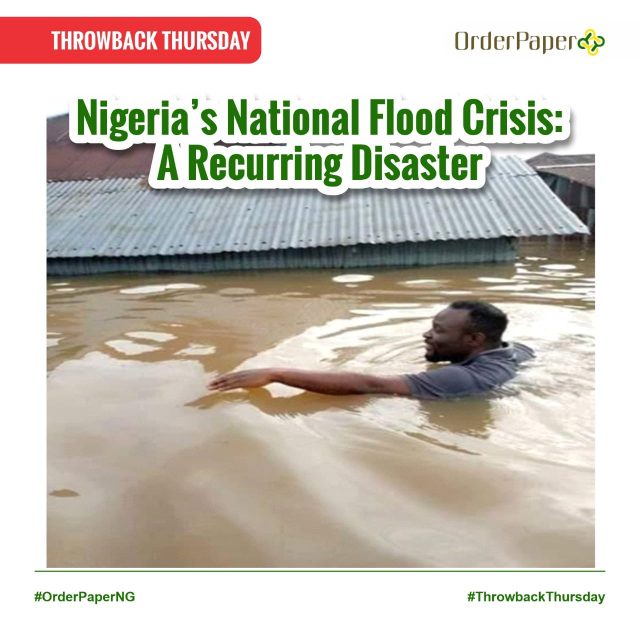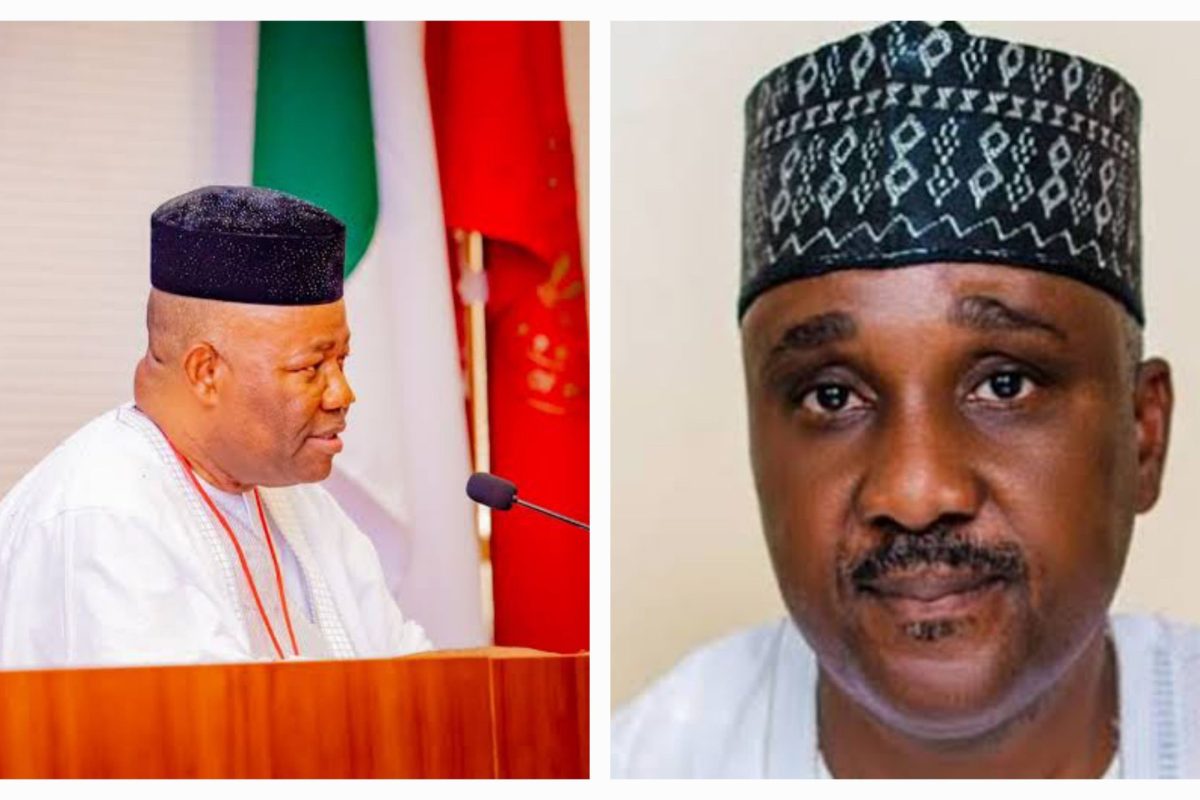Throwback Thursday is OrderPaper’s special programme focused on historical trends in the polity. It spotlights the genesis of the same and previous interventions by the National Assembly in that regard; while exploring the present as well as the way forward

In 2012, rivers burst their banks and submerged vast lands in 30 states, killing over 400 people and displacing over 2.1 million others as of November 5th 2012.
According to the National Emergency Management Agency (NEMA), the flood affected 30 of Nigeria’s 36 states.
Termed as the worst in 40 years, it affected an estimated seven million people, while the damages and losses caused by the floods were put at N2.6 trillion.
In a bid to ameliorate the sufferings of the people and the effect of the flood, the National Assembly requested that then President Goodluck Jonathan forward a supplementary budget. The Jonathan administration would later release N17.6 billion to assist the flood victims.
As the House of Representatives noted in 2013, Climate Change-related disasters like flooding, drought, unprecedented rainfall, landslides, rising temperatures, and rising sea levels have become global catastrophes. For lawmakers, such phenomena demand immediate attention and proactive measures to protect lives and property.
According to the Nigerian Meteorological Agency (NIMET) Report on the 2012 Flood Disaster, 14 of the 33 states were severely affected, 7705378 people in 256 Local Government Areas and 3,870 communities were affected. Three hundred and sixty-three were reported dead, over 18,200 persons sustained different injuries, and more than 618,000 houses and infrastructure were damaged.
With the recent flooding in the country, the Niger Delta Caucus in the House of Representatives called on President Muhammadu Buhari to sack Humanitarian Affairs Minister Saddiya Umar Farouq.
Their demand follows the Minister’s remark that Jigawa state is the state most severely impacted by the recent flooding crisis, adding that Bayelsa State is not among the top 10 states most affected.
Speaking on behalf of the Caucus, Rep. Fred Agbedi (PDP, Bayelsa) stated that the legislators are appalled by the Minister’s use of the flood calamity for shady politics. On their part, even if there was only one dead person; the situation “is enough for our country to show responsibility and sympathy to her people.”
WHAT WE THINK:
A decade after the last flood crisis in 2012, this latest disaster, currently ravaging the country since September 2022, has caused the deaths of over 600 people and displaced over 1.3 million persons from their homes.
Will the Nigerian authorities do all that is necessary to avert this disaster caused by excessive water flow, or will they adopt the ‘fire brigade approach’ again?
What will the National Assembly do after this massive crisis that has wreaked havoc on their constituents and ensure we are not back to reading the same book of Lamentations?



